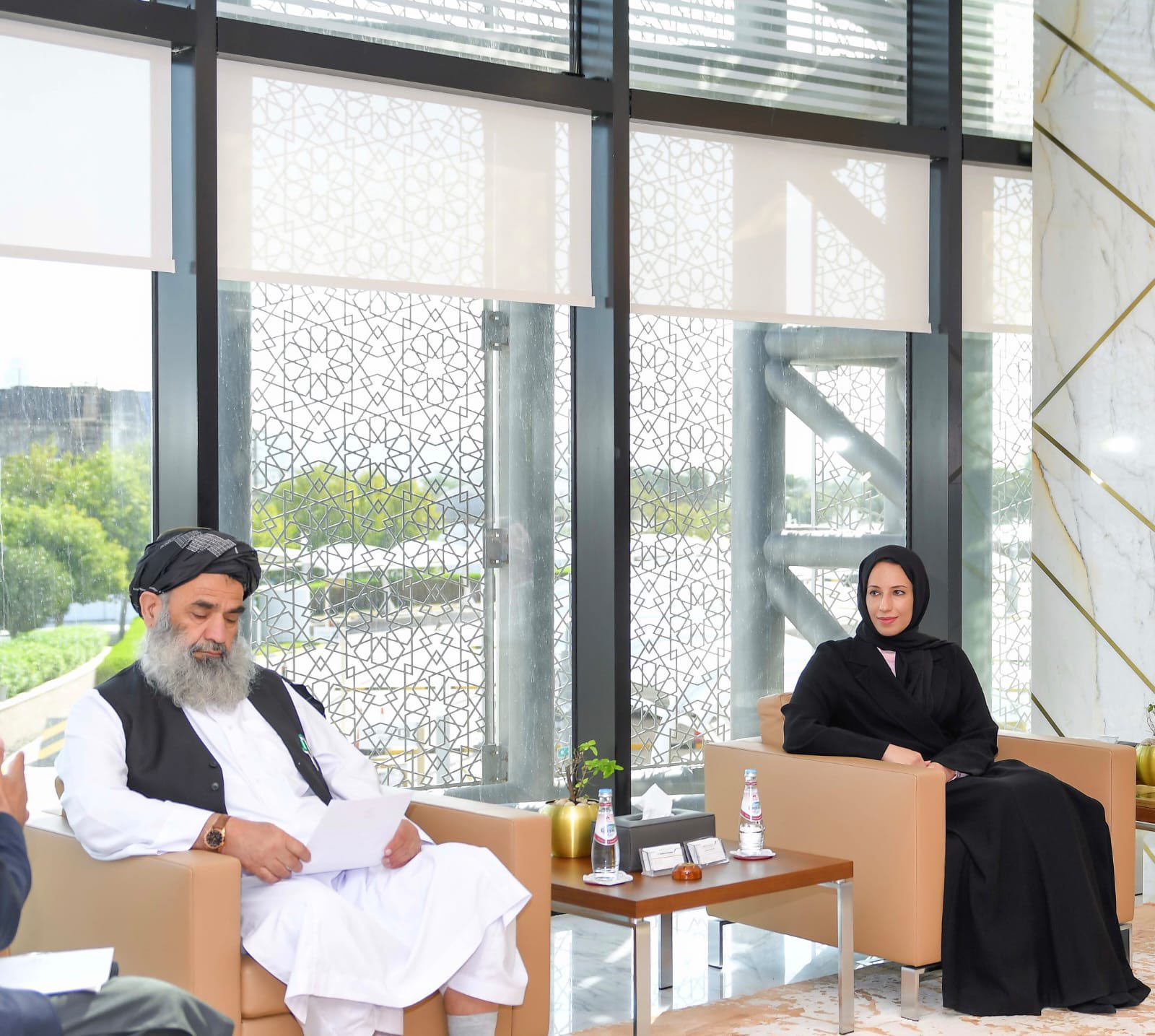UN experts have stated that the persistent and illegitimate deprivation of education for girls and young women in Afghanistan represents a worldwide low point in the sector.
Qatar hosted pivotal discussions in its capital on Monday, centred around the future of education in Afghanistan, in a bid to address the numerous challenges plaguing Afghanistan’s education system.
The talks were attended by representatives from Qatar, the Afghan Ministry of Education, UNICEF and the Education Cannot Wait organisation.
Qatar’s Assistant Foreign Minister Lolwah Al Khater and CEO of Education Above All Foundation, Fahad Al Sulaiti, led the Qatari delegation, while Afghanistan’s Minister of Education, Mawlawi Sayyid Habeeb, headed the Afghan Ministry of Education delegation.
George Laria, Regional Director for South Asia at UNICEF, and Nasser Fakih, Chief of Strategic Partnerships at Education Cannot Wait, were also present.
The discussions revolved around key issues such as economic challenges, inadequate infrastructure, limited human resources and insufficient qualifications in Afghanistan.
Another vital topic addressed was ensuring equal access to education for everyone, particularly girls.
Participants agreed on the importance of securing educational rights for all, developing a shared vision to tackle challenges and providing high-quality educational opportunities to Afghan students across all regions.
Al Khater praised the Education Above All Foundation’s efforts in facilitating the talks and expressed gratitude to the Afghan Ministry of Education, UNICEF and Education Cannot Wait delegations for their participation.
The minister emphasised the need for continued discussions to devise comprehensive solutions for Afghanistan’s education and health sectors. Qatar remains dedicated to supporting the Afghan people in overcoming these challenges.
Afghanistan’s Ministry of Education lauded Qatar’s efforts in organising the event, which aimed to find solutions in enhancing the quality of education and ensure accessibility for all Afghan students.
UNICEF and Education Cannot Wait representatives also appreciated the collaborative efforts and extended their gratitude to the Afghan Ministry of Education for their active involvement in the talks.
In recent years, Afghanistan’s education system has been significantly affected by conflict, political instability and limited resources. These talks demonstrate a shared commitment to addressing the country’s educational challenges and providing a brighter future for the next generation of Afghan students.
UN urges accessibility of education in Afghanistan
UN experts have stated that the persistent and illegitimate deprivation of education for girls and young women in Afghanistan represents a worldwide low point in the sector. This situation affects an entire gender, generation and the nation’s future prospects.
“On 22 March 2023, schools should be reopening to girls across Afghanistan. Instead, it appears that for the second successive school year teenage girls will be banned from resuming their studies – making Afghanistan the only country in the world that forbids girls and young women from attending secondary school and places of higher education,” the international organisation said in a statement.







